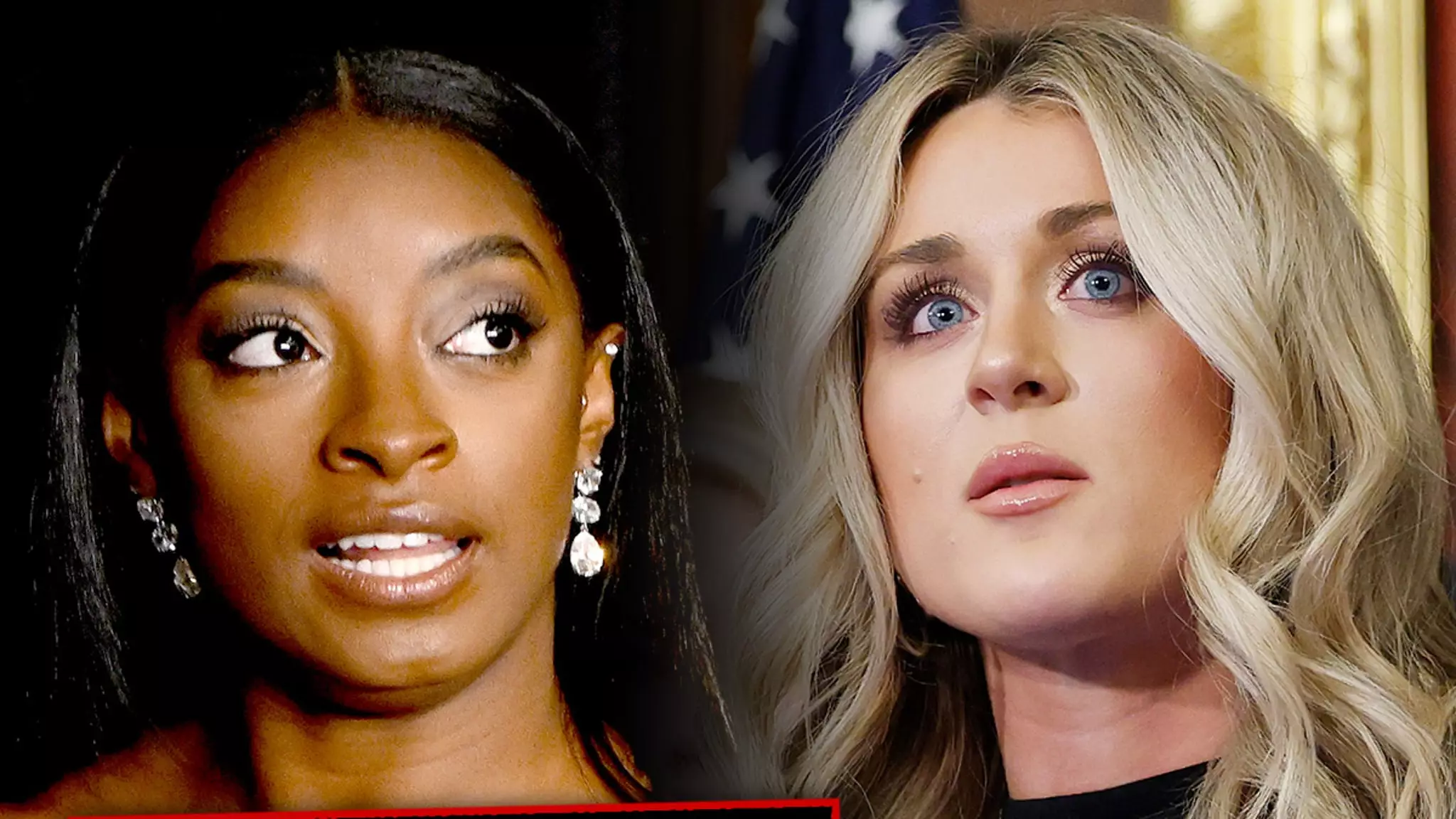The recent Twitter feud between Simone Biles and Riley Gaines has ignited a firestorm of discussion around gender inclusion in sports, a topic that resonates deeply with athletes, fans, and gender advocates alike. Biles, a celebrated Olympic champion, and Gaines, a conservative activist, represent two vastly different ideologies about what it means to compete in athletics and who should have a place at the table. Their confrontation sheds light on an overarching societal debate that often finds itself caught between the twin ideals of inclusive progress and fair competition.
The spark that ignited this exchange was a post celebrating a high school sports victory attributed to a trans athlete, which prompted Gaines to mock the situation on social media. Her comments seemed to perpetuate an “us vs. them” mentality, illustrative of a broader culture war surrounding gender identity in competitive sports. Biles’ rebuttal was not only swift but deeply personal, exemplifying the emotional stakes for those at the center of this discussion. Her assertion that Gaines’ criticisms stemmed from being a “sore loser” pointed out a critical paradox: as the sports world grapples with inclusion, success and failure now come with new parameters.
Gender and Competition: A Complex Intersection
In sports, where traditional gender lines have defined competition for centuries, the introduction of trans athletes has shifted the conversation in complex ways. Gaines argues that allowing trans women to compete in women’s sports undermines female athletes’ achievements and opportunities. Her perspective encapsulates a sentiment shared by many who fear that the inclusion of trans athletes could dilute hard-won gains in women’s sports. This conflict raises profound questions: What constitutes fair competition? How do we define biological advantage versus personal identity?
Simone Biles takes a different stance, advocating for inclusivity and the idea that sports should be a realm where everyone can participate. Her comments suggest that the essence of competition should not only hinge on rigid definitions of gender but rather on fostering environments where every athlete can thrive. Interestingly, Biles doesn’t explicitly delineate her viewpoint on trans participation in female-only categories, making her stance somewhat ambiguous, which might lead to further speculation about the implications of her position.
The Personal Dimension: At the Crossroads of Advocacy and Identity
As the conversation unfolded, Gaines invoked Biles’ own history of abuse and trauma at the hands of a male medical provider, tying the discussion of sports inclusivity to a broader narrative of women’s safety and rights. This heavy counterpoint was not merely an argument; it was a significant emotional appeal. By highlighting Biles’ past, Gaines attempted to paint her as a contradictory figure who would endorse the presence of trans women in spaces historically created for cisgender women, despite the risks involved. Such tactics can often feel like low blows in rhetorical debates, wielding personal history to gain leverage rather than focusing solely on the issues at hand.
While one could argue that Gaines’ claim is disingenuous or manipulative, it does a disservice to the authentic experiences that many women, including Biles, have endured. The concern for women’s safety and fairness in competition resonates at a primal level, and it is essential to have a respected discourse around these issues without minimizing the emotions tied to them. The discourse must evolve beyond personal jibes, ensuring respectful engagement from both proponents and critics of trans participation.
The Role of Social Media: A Double-Edged Sword
The social media platform as a battleground for these discussions exemplifies both the strengths and weaknesses of our digital age. It allows for instantaneous communication and the amplification of voices that might traditionally be marginalized; however, it often does so at the cost of thoughtful dialogue. The interactions between Biles and Gaines are crystallized moments where expressions of anger and frustration overshadow many nuanced views.
This digital flame war could serve as a case study in how we engage with polarizing conversations that demand both inclusiveness and fairness. Social media can accelerate misunderstandings and personal attacks, detracting from what should be a collaborative effort to address complex social issues. The ugliness of such exchanges can overshadow the real work necessary to create equitable policies in sports that respect all athletes while safeguarding women’s rights.
The collision of values showcased in the Biles-Gaines spat not only highlights the complexity of gender in sports but also calls for an urgent need to develop a more nuanced understanding of inclusion that respects both individual identity and collective fairness. As the dialogue continues, one can only hope for a more civil discourse that will ultimately illuminate a path toward understanding and empathy in the evolving world of sports.

